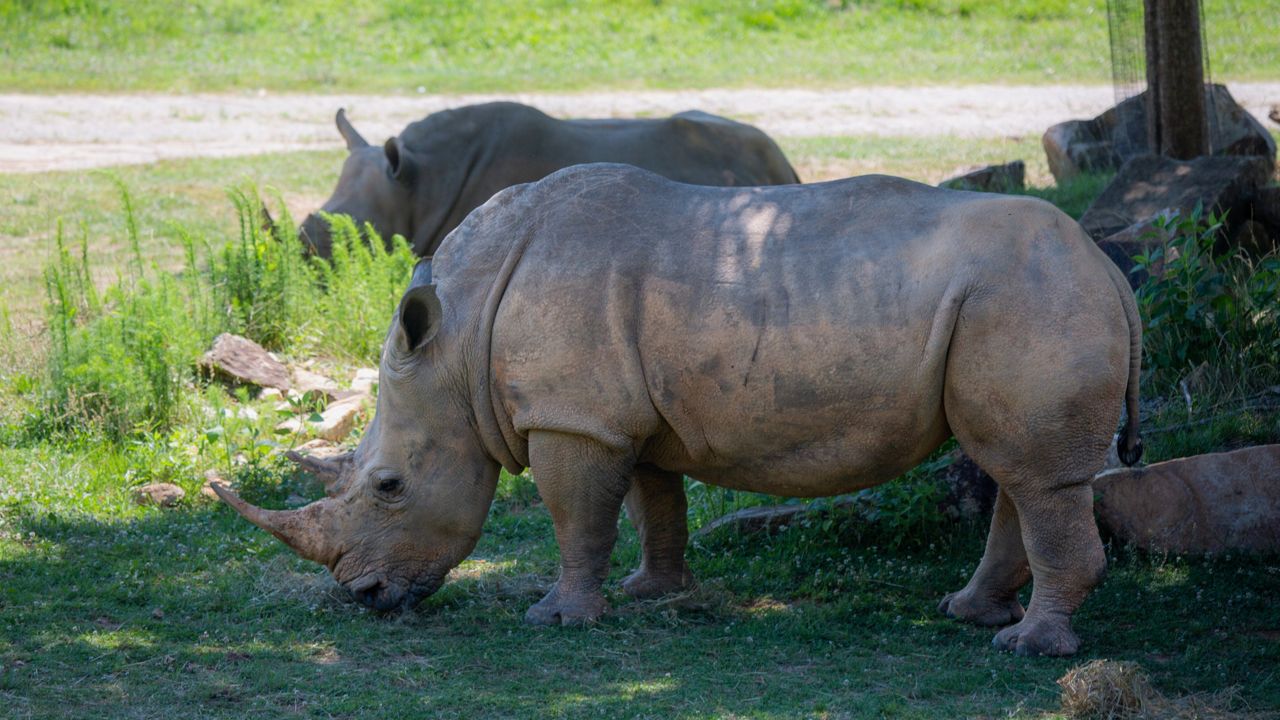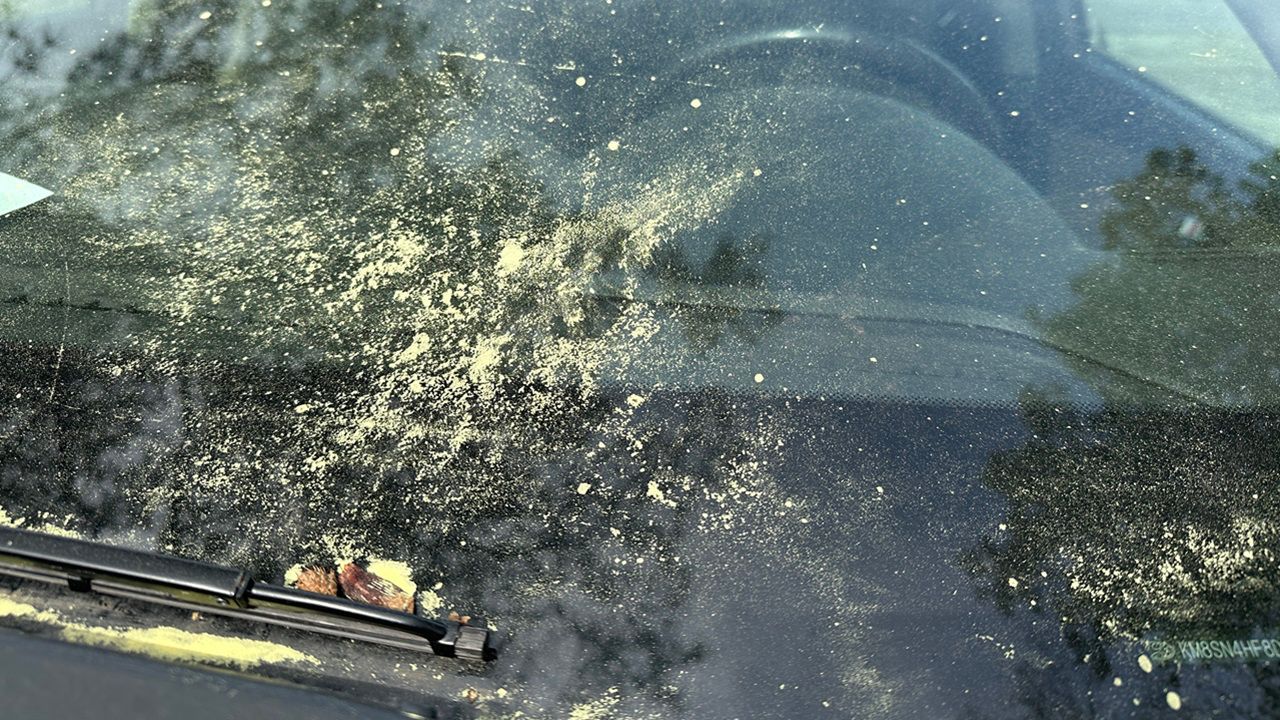ASHEBORO, N.C. — The North Carolina Zoo sadly announced the death of Natalie, a southern white rhinoceros.
“Natalie had a personality that matched her big 4,000-plus pound size,” zookeepers said in a news release.
Veterinarians and animal care teams had been treating Natalie for chronic kidney failure, anemia and multisystemic disease for the past several months.
Natalie arrived at N.C. Zoo with her son Lyonnel in 2007
A full report about Natalie’s condition will be provided soon
The animal care teams had been treating Natalie for chronic kidney failure, anemia and multisystemic disease for the past several months.
“Unfortunately, her health was in a steep decline despite treatment efforts, which led to a decrease in quality of life,” said Associate Veterinarian for the North Carolina Zoo Dr. Tim Georoff. “This week, the animal care and vet teams made the difficult decision to euthanize Natalie when treatment efforts were no longer effective."
The N.C. Zoo had eight female rhinos, including Natalie. The southern white rhino arrived at the zoo with her son Lyonnel in 2007. She had previously lived most of her life at White Oak Conservation Center in Florida, where she gave birth to two males named Tony and Dominique.
“Natalie was a tough, independent female when she arrived at the zoo who gradually softened through the years,” said Animal Management Supervisor Jade Tuttle. “She was an experienced mother and took on the ‘auntie’ role with our first set of calves in 2020 as they started to disperse from their mothers. She was a very smart rhino, often leaving us wondering who was training whom. In her declining health, she began to seek out affection from staff and was dedicated to her bestie, rhino Abby. Her wild spirit was one of a kind, and she will be missed by our crash (group of rhinos).”
The full pathology report will provide more information about Natalie’s condition in the coming weeks.
Donations in remembrance of Natalie and for rhino conservation worldwide can be made by visiting N.C. Zoo Society Anti-Poaching Programs.








